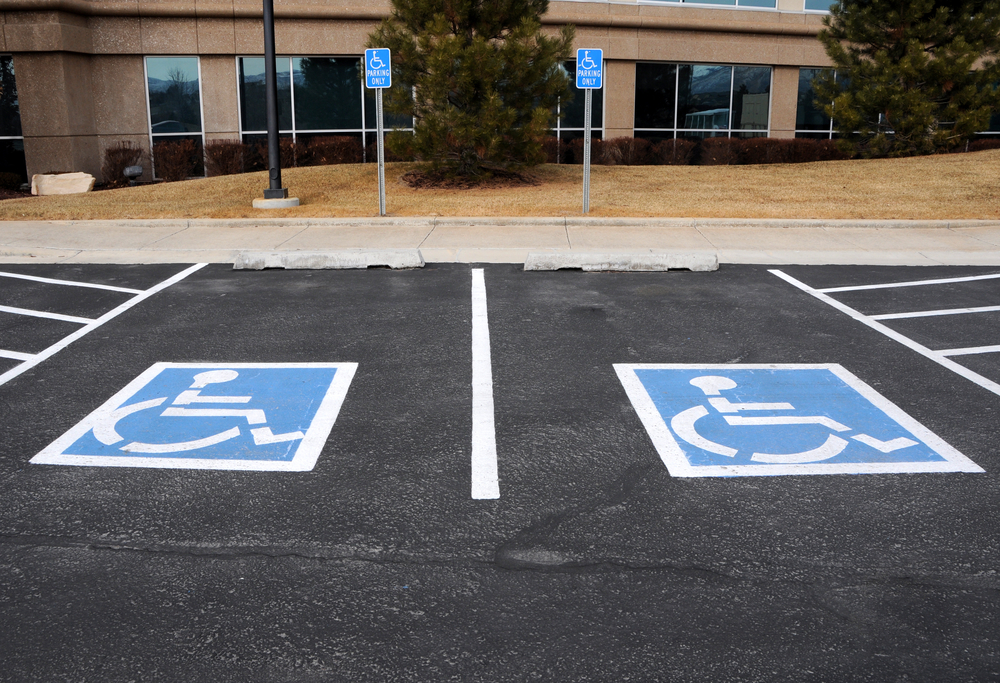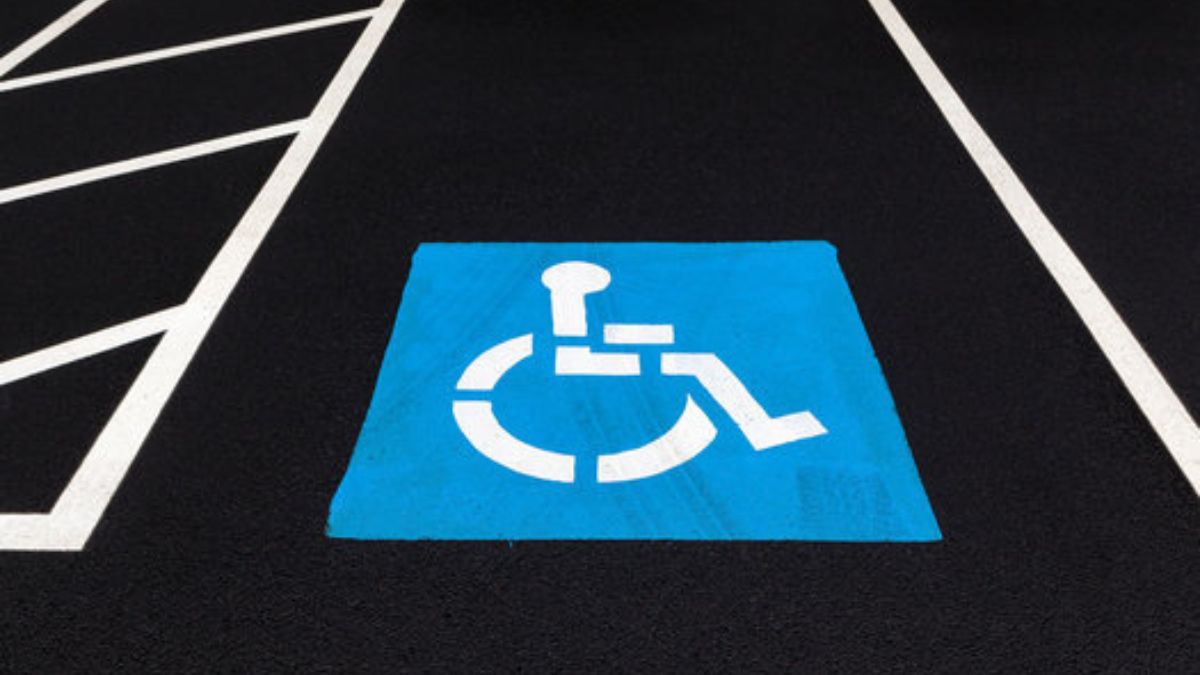Parking Like a Boss: Your Guide to Free Disabled Parking in Florida

Let’s face it, finding parking in Florida can be a real pain. You’re cruising around, sweat dripping, muttering under your breath, and all you want is a spot that doesn’t involve a three-block hike. But what if you’re also a person with a disability? Finding a parking spot can feel like a whole other level of frustration.
Fear not, fellow Floridian! This guide is your one-stop shop for navigating the world of free disabled parking in the Sunshine State. We’ll break down the rules, the requirements, and the common misconceptions, so you can park with confidence and ease.
Related Articles: Parking Like a Boss: Your Guide to Free Disabled Parking in Florida
- Navigating Phoenix Downtown Parking: A Comprehensive Guide For Visitors And Residents
- Universal Studios On A Budget: Finding Cheap Parking Without The Headache
- Your Guide To Parking At The Huntsville Convention Center: A Stress-Free Experience
- Don’t Get Ticketed! Your Guide To Parking At Colorado’s Best Photography Spots
- Colorado’s Highway Rest Stops: Your Road Trip Oasis
The Lowdown on Florida’s Disabled Parking Laws
Florida’s disabled parking laws are designed to make life easier for individuals with disabilities. They’re not just about finding a closer spot; they’re about ensuring everyone has equal access to public spaces.
Here’s the deal:
- Who Qualifies? If you have a physical disability that makes it difficult to walk, you’re eligible for a disabled parking permit. This includes conditions like arthritis, multiple sclerosis, spinal cord injuries, or even temporary disabilities like a broken leg.
- Getting Your Permit: The process for getting a disabled parking permit is pretty straightforward. You’ll need to fill out an application and have it signed by a licensed medical professional who can verify your disability. You can find the application online or at your local county tax collector’s office.
- Where to Park: You can park in designated disabled parking spaces, which are typically marked with blue paint and the international symbol of accessibility. These spaces are usually located close to building entrances, and there are often additional spaces available for vans with wheelchair lifts.
- The Fines: Don’t even think about parking in a disabled space without a permit! The fines are hefty, and you could even face legal action.

Beyond the Basics: The Nitty Gritty of Florida’s Disabled Parking Rules
Now that we’ve covered the basics, let’s dive into some of the finer points:
- The Hang Tag: In Florida, you can choose to display your disabled parking permit as a hang tag or a license plate placard. The hang tag goes on your rearview mirror, while the placard is attached to your license plate. Both options are equally valid, so pick whichever you find more convenient.
- Family Members: If you’re a caregiver for someone with a disability, you can apply for a temporary disabled parking permit on their behalf. This allows you to park in designated spaces while transporting them.
- Temporary Disabilities: Even if you have a temporary disability, you can still apply for a disabled parking permit. Just make sure you have documentation from a medical professional verifying the nature and duration of your disability.

Common Misconceptions About Disabled Parking
We’ve heard it all, folks. Let’s bust some myths:

- "I’m just going to be quick, so it’s okay to park in a disabled spot." Absolutely not! Even if you’re only running in for a minute, it’s still illegal to park in a disabled space without a permit.
- "I can use my disabled parking permit even if I’m not driving." While your permit is valid for your vehicle, it’s not transferable to others. You can’t let your spouse or friend use it if you’re not with them.
- "I can park in any disabled space, even if it’s not marked for my specific needs." This is a tricky one. While it’s generally fine to park in any designated disabled space, there are some exceptions. For example, some spaces are specifically designated for vans with wheelchair lifts. Pay attention to the signage and make sure you’re parking in a space that’s appropriate for your needs.
Navigating the Parking Maze: Tips for Finding Accessible Spots
Finding a disabled parking space can be a bit of a scavenger hunt, especially in popular areas. Here are a few tips to help you out:
- Arrive Early: This is a no-brainer, but getting there early can significantly increase your chances of finding a spot.
- Use Online Tools: Many parking apps and websites allow you to see real-time availability of disabled parking spaces.
- Look for Signs: Keep your eyes peeled for blue signs that indicate disabled parking areas.
- Don’t Be Afraid to Ask: If you’re having trouble finding a spot, don’t hesitate to ask a parking attendant or security guard for assistance.
Parking with Confidence: Your Rights and Responsibilities
Knowing your rights and responsibilities is key to parking like a boss. Remember:
- You Have the Right: You have the right to park in a designated disabled space if you have a valid permit.
- You Have the Responsibility: You’re responsible for displaying your permit properly and parking in a space that’s appropriate for your needs.
- You Have the Power to Report: If you see someone parking illegally in a disabled space, don’t hesitate to report it to the authorities.
FAQs: Your Burning Questions About Disabled Parking in Florida
Q: How long is a disabled parking permit valid for?
A: A disabled parking permit in Florida is valid for four years.
Q: What if my permit is lost or stolen?
A: If your permit is lost or stolen, you’ll need to apply for a replacement. You can do this online or at your local county tax collector’s office.
Q: Can I get a disabled parking permit for my motorcycle?
A: Unfortunately, Florida does not issue disabled parking permits for motorcycles.
Q: What if I’m visiting Florida from another state?
A: If you’re visiting Florida from another state and have a valid disabled parking permit from your home state, you can use it in Florida.
Q: Can I park in a disabled space if I’m dropping someone off?
A: You can only park in a disabled space if you have a valid permit and are transporting someone with a disability.
Parking with Pride: Making a Difference in the Sunshine State
By understanding the rules and regulations surrounding disabled parking in Florida, you can help create a more inclusive and accessible environment for everyone. So, go out there, park with confidence, and know that you’re making a difference. And remember, if you ever have any questions or concerns, don’t hesitate to reach out to the authorities or your local advocacy group.
Let’s all work together to ensure that everyone in Florida has the freedom to park safely and comfortably. After all, we’re all in this together!

Closure
Thus, we hope this article has provided valuable insights into Parking Like a Boss: Your Guide to Free Disabled Parking in Florida. We appreciate your attention to our article. See you in our next article!
/airport-pkg-56a237f53df78cf772736048.jpg)

